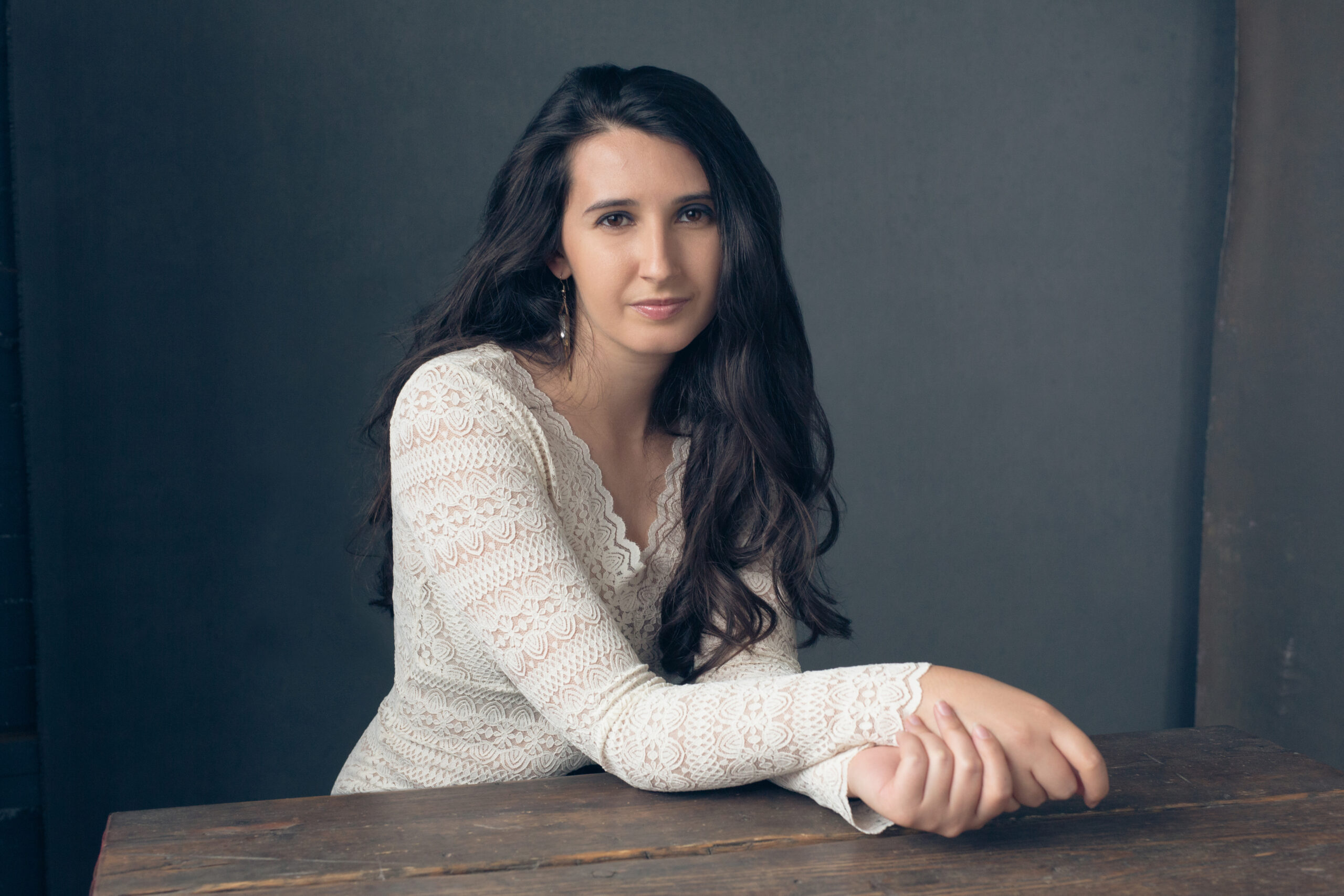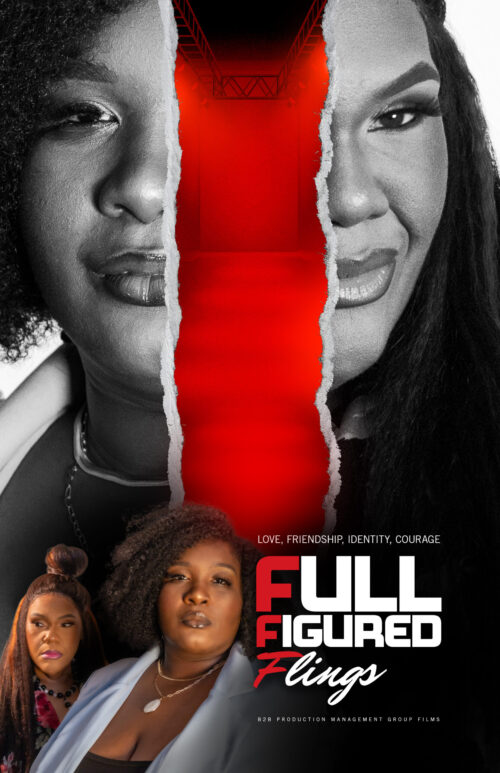We Speak Actors
Sophia Eleni stars with John Rhys-Davies in new horror film ‘Bone Keeper’


London-based actress Sophia Eleni has appeared in a number of popular TV series including ‘Call The Midwife’ and ‘Casualty’, and she’s soon to appear on the big screen as one of the lead cast members in horror film ‘Bone Keeper’. ‘Bone Keeper’ follows six young friends who enter remote caves and are hunted down by a mysterious creature. It also stars John Rhys-Davies, best known for portraying Gimli in the ‘The Lord of the Rings’ trilogy. Sophia talks about clambering through mud, pretending to rock-climb and why she loves horror films…
How exciting is it to be one of the leads in ‘Bone Keeper’?
“It’s amazing! Working with John Rhys-Davies was a blast – he’s full of wild stories and knows everything about geology, which was perfect for this film. There’s lots of buzz already about ‘Bone Keeper’, with a headline release in Variety, and the film went to Cannes this month. I play Nadia – she’s feisty, driven and determined to be the first to discover what’s really hiding in those caves. She’s conflicted between helping her friends, and chasing glory and fulfilling her ambitions. I loved leaning into her tough, tomboy energy – even if I had to fake being good at rock climbing!
“I seem to get cast a lot in these action-horror type films, which is funny considering I’m not exactly Bear Grylls.”
Was it a challenge to film?
“We were filming in wild, rugged landscapes – climbing through caves, crawling and slipping in mud… Halfway through shooting a lot of us got sick, which was intense but also kind of perfect – it mirrored the suffering and resilience of our characters. I love horror because it’s such a rich genre for actors. You get to explore every facet of human nature. ‘Bone Keeper’ really captures that in a raw and thrilling way.”

What are your favourite moments so far from your acting career?
“I’ve worked on some brilliant UK and US productions that I’m really proud of. In season 10 of ‘Call The Midwife’, I played Maria Kaufopolous – a feisty Cypriot woman who goes into labour on Christmas Day. She was such a fun character, with sharp one-liners and zero patience for her useless husband! It was fun making the character my own and bringing my own humour into it, and working alongside Jenny Agutter was a real honour.
“I also had a nice gig on ‘Casualty’ – I’d just passed my driving test and in the episode I had to film a full-blown car crash scene!
“And on the film side, ‘The Shamrock Spitfire’ was a standout project. It’s a WWII biopic, where I play a nurse who falls in love with the protagonist, though it is unrequited. She’s funny, compassionate, and deeply committed to his recovery. The role earned me five Best Actress awards, which was incredible. I’ve always had a love for that era of history and I did extensive research into nurses of the time because I wanted to honour the real women who lived through those horrors with such strength and humour.”
What’s next on the radar for you?
“Next up, I’m incredibly excited about an ‘AAA’ video game I’ve been working on with Frictional Games, where I play the leading role. It’s been months of intense voice and performance capture work, and I can’t wait for its release – it’s going to be a biggie!
“I’m also eagerly anticipating the release of the film ‘As Night Falls’, which has already had a headline feature in Variety. We’re premiering in Leicester Square this year, and I play the lead, Jane – who becomes the real emotional anchor of the story. It’s a tense, psychological horror set in an industrial estate, where a group of survivors are hunted by a dark entity that mimics people’s appearances, slowly fracturing their sanity and trust in each other. I’ve always been drawn to characters who feel resilient, complex and full of humanity, and I’m excited to keep telling stories that challenge and connect with audiences.”
‘Bone Keeper’ will be released in cinemas in autumn 2025.
We Speak Actors
Full-Figured Flings Teaser Nears 14K Views – Director of Photography Offers Special Father’s Day Release

Back 2 the Basics Production Management Group is proud to announce the official teaser premiere for FFF: Full-Figured Flings, a bold and unapologetic new film celebrating full-figured women and challenging the norms of beauty in Hollywood. Clocking in at just 46 seconds, the teaser doesn’t waste a moment, delivering a powerful visual and emotional punch that sets the tone for a project rooted in body positivity, size inclusivity, and cultural truth.
Premiering ahead of the 20th anniversary of Phat Girlz (2006), FFF serves as both homage and evolution. The film expands the conversation around colorism, sizeism, and shapeism, spotlighting women who have often been cast aside, sidelined, or silenced.

“This teaser is more than a preview—it’s a declaration,” said Lillie Mae Jones, creator and producer. “FFF is our love letter to the women who’ve never been centered but have always been essential. We’re not just telling stories—we’re shifting the lens.”
FFF: Full-Figured Flings is currently in development as a non-union independent production, with plans to release in 2026. The film invites audiences and allies to follow, support, and amplify the message through community engagement, open casting calls, and creative collaborations—including the launch of a nationwide call for a “Big Girl Anthem” to serve as the film’s official theme song.


Accept the Challenge…
The buzz is building fast around the highly anticipated full-figured fashion experience FFF, and now there’s a challenge on the table that fans won’t want to miss.
After racking up 11,000 views in less than 10 days, the official teaser video for FFF on YouTube is quickly gaining momentum. And now, the film’s Director of Photography, Dominique Perry, has thrown down a bold offer:
“If we hit 20,000 views before Saturday, June 14th, I’ll drop an exclusive second teaser on Father’s Day.”
This is more than a film—it’s a movement. FFF is a high-fashion, high-impact visual celebration of full-figured women taking a stand for representation, inclusion, and power on and off the runway.
Here’s how you can help make it happen: Watch the teaser now on YouTube. Like, comment, and subscribe. Share it with your community and post why YOU stand in solidarity with full-figured women
Watch here for a taste of the boldness, beauty, and energy
-

 We Speak Music4 days ago
We Speak Music4 days agoTIHANE dances with a Python in video for wildly alive new single ‘Throw It Back’
-

 We Speak Coaches3 days ago
We Speak Coaches3 days agoBuilding Champions On and Off the Court: The Heart and Dedication of a True Basketball Mentor
-

 We Speak Track And Field5 days ago
We Speak Track And Field5 days agoMuscle. Mindset. Mayhem. Welcome to the World of Andrew J. Sabeh: The Throwing Evolution Redefining Power and Precision
-

 We Speak Track And Field7 days ago
We Speak Track And Field7 days agoFrom Hop to History: How Faith and Meters Define Olivia Dowd’s Track and Field Journey

